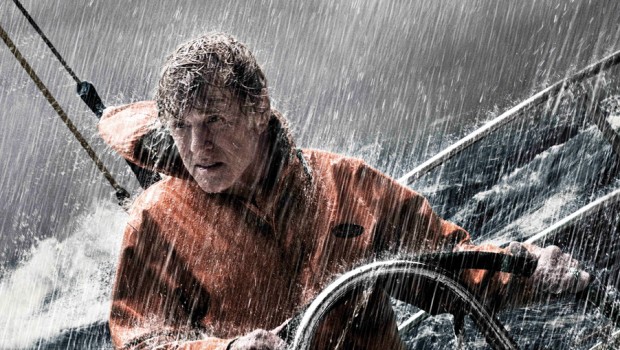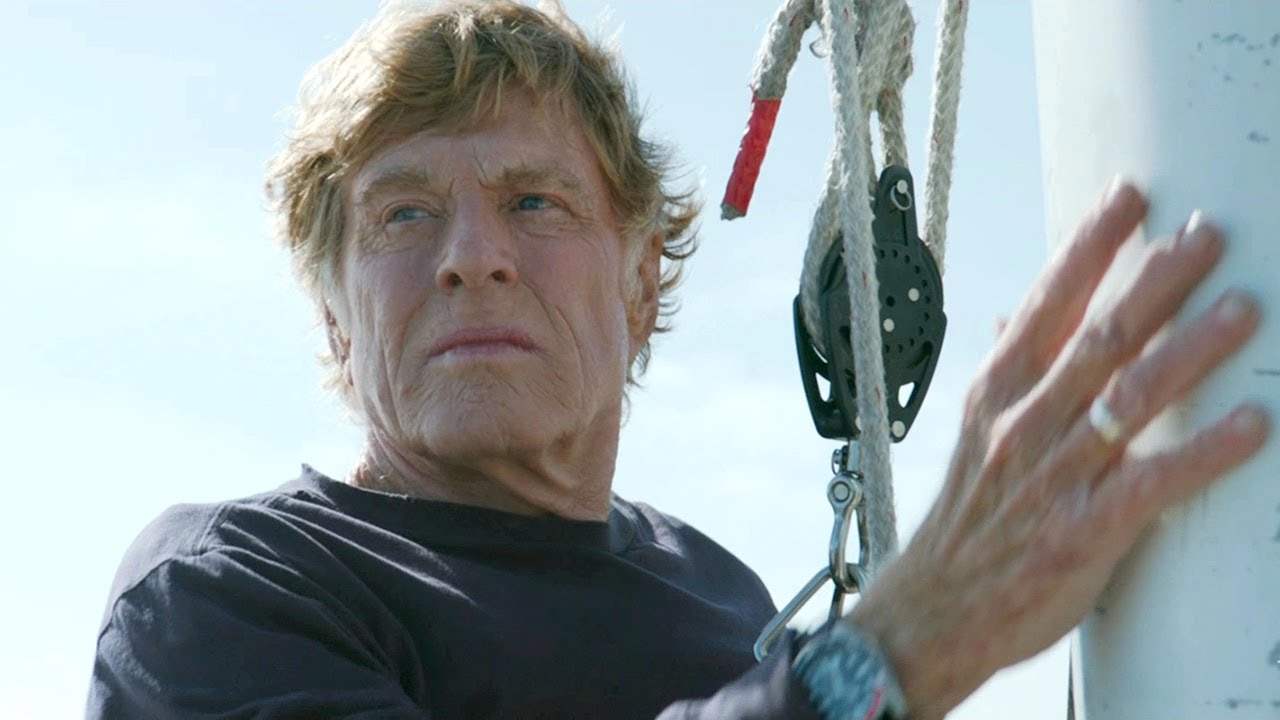All Is Lost – Film Review
Reviewed by Damien Straker on March 5th, 2014
Universal presents a film by J.C. Chandor
Written by J.C. Chandor
Starring: Robert Redford
Running Time: 106 minutes
Rating: M
Release Date: March 6th, 2014
Imagine the amount of care a director making only his second film would have to take in putting a seventy-seven year old actor through the wringer of extensive stunt work. Though it has just the one character and is set entirely in one location, on a boat at sea, All Is Lost is far from Alfonso Cuaron’s Gravity. Writer and director J.C. Chandor (Margin Call) made the film for eight million dollars, nearly a tenth of Gravity’s budget. The low budget ensured the film had to be made almost entirely with practical stunts instead of computer generated effects, a contrast to Gravity, which is no less wondrous, but relies heavily on CGI. Filming took place over two months in a water tank in Mexico, the same one used for Titanic. Three identical boats were photographed using mostly one handheld camera, while a green stage screen was employed to generate the terrifying thunder storms.
Chandor says ninety-five percent of the film is the lead actor Robert Redford himself, hailing him as being a serious athlete. Having an older actor work with practical effects is risky but also inspired and brilliantly realised. Tension mounts by blurring our knowledge of what’s real and what’s pure movie making. Realism and physicality have become a lost art in filmmaking. Special effects are deemed safer and more convenient today but don’t have the same impact as physical stunts. We care more when the images seem real. The fear is so great at times here that I wondered what was staged. There isn’t a higher compliment to pay a film that relies dominantly on physicality. Casting an older actor poses more questions about the character’s duress than if a younger man were cast. With a B.A. in Film Studies and having studied film production, J.C. Chandor also knows how to move the camera in exciting ways. The camera is fluid, swirling, tilting and dipping while Redford wades through water or is thrown overboard. It’s a much more confident and technically modern effort than his previous film.
Equally unique for a Hollywood film is the sparseness of the shooting script, which is only thirty-one pages long. To sustain the realism, Chandor purposely masks the film clichés we’ve seen before. Aside from an opening voice-over and one cuss word, there is no dialogue in the film. There is no backstory or plot either. There are no lessons or character development. If the premise is metaphorical it is simply an elderly man clinging to the last strands of his life and the sea around him is death. What’s impressive is in spite of the script’s leanness we still care about the main character, who is listed in the credits as “our man”. This is partly because of how strong Robert Redford is during the action but also the small character building moments. I liked it when he took the time to shave on the boat or picked up both a fork and spoon. These minute details characterise this man as having no intention of dying, only a stubborn belief that he can hold on. If people criticise the film for not having enough action or the inactivity, what else is there to do when you’re stranded out at sea?
This question of inactivity only catches up with Chandor towards the end of the film when he starts running out of things for “our man” to do. He sits on the boat and he craftily repairs a gaping hole in the side of the vessel. He climbs up to the top of a mast in a breathtaking moment. For as long as the film can go, it avoids conventional set pieces, whereas Gravity unashamedly embraced them. Yet when there are least two late scenes where “our man” uses flares to attract the attention of nearby shipping vessels, the scaffolding in the script starts to become more transparent and less lifelike. Similarly, the film’s ending, which I won’t spoil, is a touch softer than I would have liked. These are niggling criticisms for a daring and impeccably made exercise. There is a lot of overproducing and wastage in Hollywood. This film makes an excellent case that sometimes less can be so much more.
Summary: Tension mounts by blurring our knowledge of what's real and what's pure movie making










